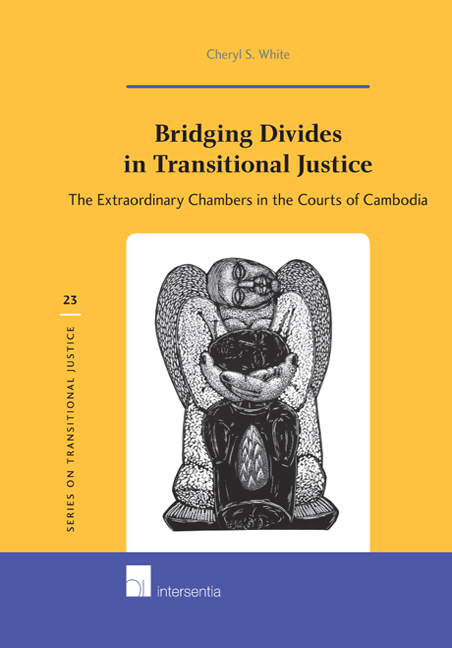
- Cited by 1
-
Cited byCrossref Citations
This Book has been cited by the following publications. This list is generated based on data provided by Crossref.
Killean, Rachel 2018. Constructing victimhood at the Khmer Rouge Tribunal. International Review of Victimology, Vol. 24, Issue. 3, p. 273.
- Publisher:
- Intersentia
- Online publication date:
- September 2018
- Print publication year:
- 2017
- Online ISBN:
- 9781780684970
- Subjects:
- Public International Law, Law
- Series:
- Series on Transitional Justice


